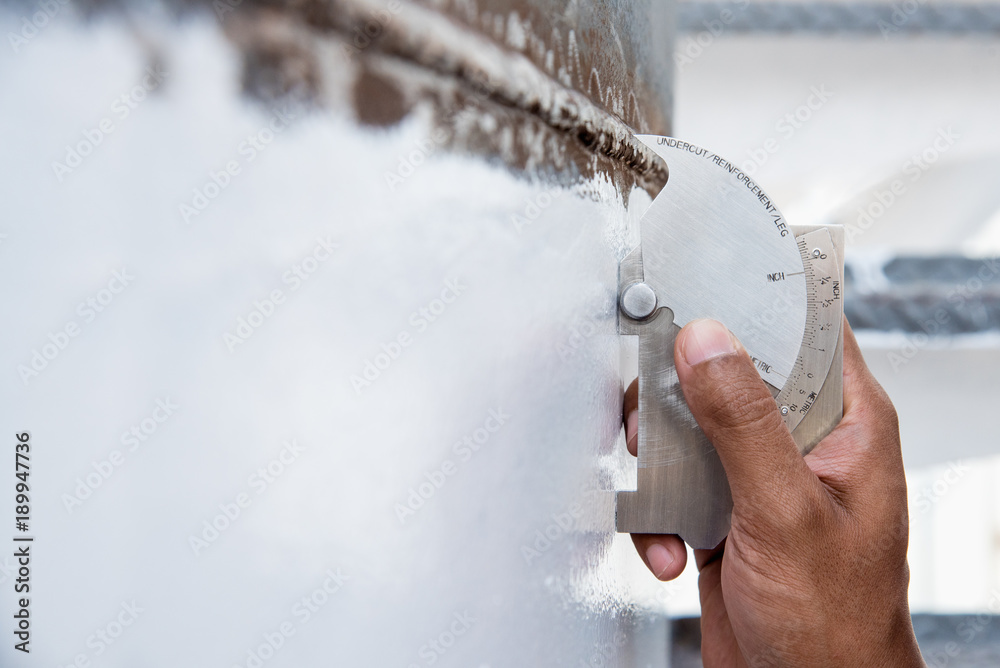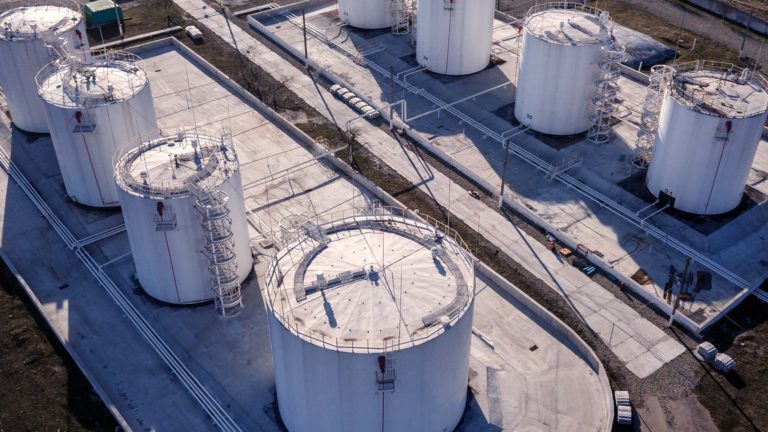Comprehensive Guide to Tank Welding Inspection for Security and Quality
Wiki Article
The Essential Function of Tank Welding Evaluation in Ensuring Structural Integrity and Safety Conformity in Industrial Applications
In the world of industrial applications, container welding inspection emerges as a pivotal component in securing architectural integrity and making certain compliance with security regulations. Utilizing a mix of strategies such as visual evaluations and progressed testing approaches, these examinations serve to identify and minimize prospective defects prior to they intensify into significant hazards.Value of Storage Tank Welding Inspection

Guaranteeing compliance with market criteria and regulations is an additional significant facet of storage tank welding assessment. Regulative bodies mandate strict standards for the construction and maintenance of storage tanks, and thorough evaluations help companies adhere to these demands. Non-compliance can cause severe penalties, including fines and shutdowns, better emphasizing the demand for extensive examination protocols.
In addition, storage tank welding assessment plays an important role in keeping operational performance. In recap, the importance of container welding inspection exists in its ability to secure public health, protect the environment, and make certain compliance with regulative structures.
Key Examination Strategies
Reliable tank welding evaluation counts on a range of crucial strategies that make sure complete assessment of weld high quality and structural integrity. Amongst one of the most widespread techniques are visual inspection, ultrasonic testing, radiographic screening, and magnetic bit testing - Tank Welding Inspection. Each technique provides unique advantages in examining different facets of the weld
Aesthetic examination acts as the very first line of protection, enabling inspectors to recognize surface problems, irregularities, or disparities in the weld grain. Ultrasonic testing uses high-frequency sound waves to spot internal defects, such as fractures or voids, providing a thorough evaluation of weld honesty. This technique is specifically effective in identifying issues that might not show up externally.
Radiographic testing uses X-rays or gamma rays to produce photos of the welds, disclosing interior interruptions and giving an irreversible record for future referral. This technique is highly efficient for essential applications where the risk of failing have to be minimized.
Finally, magnetic particle screening is employed to identify surface and near-surface issues in ferromagnetic materials. By using electromagnetic fields and great iron bits, assessors can pinpoint discontinuities that could compromise the structural integrity of the container. Together, these techniques create a durable framework for ensuring high-grade welds in commercial applications.
Conformity With Safety Requirements

Normal assessments play a pivotal function in guaranteeing compliance by recognizing prospective failures or deviations from recommended standards. Inspectors are trained to review weld high quality, verify product specifications, and analyze the general structural honesty of tanks. Their knowledge is important in ensuring that welding procedures meet the needed security standards.
Furthermore, conformity with security standards not just secures employees yet also safeguards the environment from potential dangers such as leaks or tragic failings. Organizations that focus on security compliance are much better placed to reduce threats, boost operational effectiveness, and cultivate a culture of safety within their labor force. In recap, maintaining rigorous conformity with security criteria is important for the successful procedure of storage tank welding tasks in industrial settings.
Advantages of Regular Assessments
Normal inspections are integral to preserving the structural honesty and safety of bonded storage tanks. These inspections supply a methodical method to identifying possible issues or weak points in the welds, making sure that any problems are dealt with prior to they intensify into significant failings. By carrying out routine assessments, companies can discover corrosion, fatigue, and other types additional info of damage that may jeopardize storage tank performance.Moreover, constant assessments add to conformity with industry laws and standards. Sticking to these standards not just mitigates lawful risks yet likewise enhances the company's credibility for safety and integrity. Normal examinations cultivate an aggressive security culture, motivating employees to recognize and prioritize the importance of tools honesty.

Situation Research Studies and Real-World Applications
Situation researches and real-world applications show the substantial impact of effective tank welding examination methods. One remarkable instance is a large petrochemical facility that dealt with significant functional disruptions due Visit This Link to leakages in tank. Following the execution of rigorous welding examination procedures, consisting of aesthetic and ultrasonic screening, the facility determined critical flaws in weld joints that might have led to catastrophic failures. This aggressive technique not just prevented ecological hazards however additionally conserved the firm millions in potential cleanup expenses and regulative fines.Similarly, a water therapy plant executed a comprehensive examination program for its container welding procedures - Tank Welding Inspection. By integrating non-destructive screening techniques, the plant was able to discover early signs of corrosion and tiredness in weld joints. This timely treatment prolonged the life-span of the tanks and made certain conformity with safety policies, hence safeguarding public wellness
These study emphasize the relevance of normal and systematic container welding assessments. By focusing on these methods, markets can reduce dangers, boost architectural integrity, and make sure conformity with security requirements, ultimately causing improved functional effectiveness and reduced obligations.

Conclusion
In final thought, tank welding examination is an indispensable component of preserving architectural integrity and security in industrial applications. Using different assessment methods makes sure early discovery of potential imperfections, thereby stopping disastrous failures.Report this wiki page